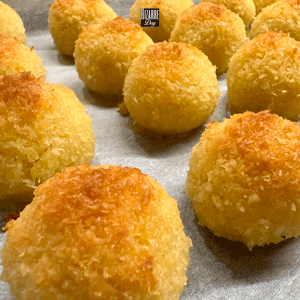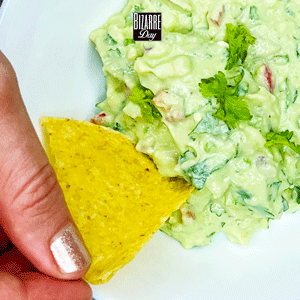Sugar Madness and that Sugar Film
Sugar Madness and that Sugar Film, is related to sugar consumption, the effects of sugar consumption in our mental health and one documentary called That Sugar Film that I highly recommend relating this matter.

Since, Bizarre Day means the art of living consciously, a place where healing journeys start by knowledge; its considered important to expose sugar consumption in any form as toxic, unhealthy and highly addictive.
To be Sugar free, increases the chances to move on to a more natural lifestyle with a better connection towards oneself.
Now lets get to know a bit more about Sugar History, shall we?

Sugar history begins all the way to the year of 8,000 BC. Sugar is native to, and first cultivated in, New Guinea.
Initially, people chew on the reeds to enjoy the sweetness but 2.000 years later, sugar cane makes its way (by ship) to the Philippines and India.
Sugar is first refined in India: the first description of a sugar mill is found in an Indian text from 100 A.D.
From the year 1402 to 1500; The Spanish colonize the Canary Islands, setting up sugar plantations and enslaving indigenous people to run the mills.
By 1516, Hispaniola is the most important sugar producer in the New World.
Portuguese growers make technological advances in sugar production: a new mill design that could be powered by animals, water, or even wind.
A new method for refining sugar that allows them to operate on a larger scale.
 Brazilian sugar production eventually dominates the industry.
Brazilian sugar production eventually dominates the industry.
By the year 1600s; coffee, tea, and chocolate have made their way to Europe.
Their arrival drastically increases sugar consumption, making sugar more popular than alcohol ever did.
During the 17th century alone, over half a million African slaves are shipped to Brazil and other New World colonies to work on sugar plantations.
After over a century fighting to pass the slave trade abolition bill and turning to the maple Sugar Industry in America.
It was not until the 1900s, The ASRC creates the Domino Sugar brand to market all the sugar they produce under one name.
By 1907 ASRC controls 97% of all American sugar production.
Finally, after almost 50 years of crazy free sugar highs and lows, it was not until 1942 that the American Medical Association’s Council on Food and Nutrition suggests that:
“It would be in the interest of the public health for all practical means to be taken to limit consumption of sugar in any form in which it fails to be combined with significant proportions of other foods of high nutritive quality.”
By 1966, Medical professionals recommend a decrease in sugar intake, noting new studies that correlate sugar consumption with diabetes and other diseases.
These studies, and the increasing rates of diabetes and obesity, spark an interest in sugar substitutes.
Now, by 1980, which i think, was a great year for Sugar, the FDA considers fat a greater villain than sugar, driving a trend of reduced-fat (but high-sugar) manufactured food.
Sugar-related health issues continue to rise like crazy and nowadays, we all know what the ending of this is.
Did You know?
1.- A study published PLoS One found that sweet foods can be more addictive than cocaine.3
 Though the research was performed on animals, investigators found that intense sweetness can surpass cocaine reward, even in drug-sensitized and -addicted individuals. (Lenoir M, Serre F, Cantin L, Ahmed SH. Intense Sweetness Surpasses Cocaine Reward.
Though the research was performed on animals, investigators found that intense sweetness can surpass cocaine reward, even in drug-sensitized and -addicted individuals. (Lenoir M, Serre F, Cantin L, Ahmed SH. Intense Sweetness Surpasses Cocaine Reward.
2.- Emotional eating has been show to stem from the desire to mitigate the effects of stress (Van Strien et al., 1986) and stress is partially regulated by the hypothalamic-pituitary-adrenal (HPA) axis.
Interestingly, activity of the HPA axis has been shown to be reduced through the consumption of sugar containing foods. (Ulrich-Lai et al., 2011)
When Sugar consumption, hormones are released to reduce the feelings of stress, which also increase the desire for comfort foods, thus perpetuating emotional eating habits (Ulrich-Lai et al., 2011; Ursano et al., 2009).
3.- In another study, published in 2017 in the journal Scientific Reports, found those with the highest level of sugar consumption were a 23% more likely to be diagnosed with a mental disorder than those with the lowest sugar intakes.
By now in 2021 we have huge amounts of information relating to how Sugar consumption damage our physical bodies and mental health.
But for some reason, we still cannot seem to be able to avoid the temptation to go after that sweet craving; and for what is worse, nowadays, it does not even have to be sweet to contain insane amounts of sugar in it _hidden_.
In the last half century, sugar consumption has tripled worldwide, partially due to the hidden use of added sugars in processed food (Lustig et al., 2012)
This sugar madness is everywhere!!
Yes! Everywhere, in our hair products, skin products, toothpaste, food, pastry, nail polish, drinks. The list is endless.
I mean, when I say Sugar has conquered us, I literally mean, if we were playing risk against Sugar, it would be the player with three dice and 1000 soldiers against our poor 3 men army.
It’s got to stop; it is damaging ourselves and our future generations. Making us all addict and overweight, unhealthy, heading to the road of strange diseases and unbalanced mental health.
Like any other feel-good drug, sugar slowly takes control over people’s life, making them anxious, depressed, and restless.
Personal Experience
When it comes to stop Sugar consumption for good, I can say, it was almost as hard as leaving 10 years of smoking.
I felt withdrawal syndrome for about 2 weeks, drastic mood swings, drowsiness, high levels of anxiety, sweets cravings, and in general, experienced an irritable state with my husband for those first weeks.
Without my usual, sugar fix, the world seemed bluer, shorter than ever.
And I never even considered myself as someone with sweet tooth!!!.
 Don’t even let me start with all the exhaustive search in the back of all the products for the nutritional info, to see if they contained any type of sugar, corn syrup, cane sugar, fructose… sucralose, or any other type of sugar masked as “healthier” in it.
Don’t even let me start with all the exhaustive search in the back of all the products for the nutritional info, to see if they contained any type of sugar, corn syrup, cane sugar, fructose… sucralose, or any other type of sugar masked as “healthier” in it.
I remember those first few weeks were exhausting.
Of course, after some time passed, I started feeling better and all this sugar blues, started to disappear, leaving sharpness and giving a new meaning to being awake.
But sure, at the beginning; it was very hard, so, I do understand anyone who have second thoughts about making this drastic step.
It is hard and will take effort and persistence. But you can Do it; and its definitely worth it.
if you are reading this, it means you care and most of all, it means that your inner self is telling you to go for a change, to go for something else, something different.
So my recommendation would be to listen to yourself because you are right for sure on this one!
But, What is Sugar anyways?
 The etymology reflects the spread of the commodity. From Sanskrit (śarkarā), meaning “ground or candied sugar”, came Persian shakar, then to 12th century French sucre and the English sugar.[3]
The etymology reflects the spread of the commodity. From Sanskrit (śarkarā), meaning “ground or candied sugar”, came Persian shakar, then to 12th century French sucre and the English sugar.[3]
Sugar is sweet crystallizable material that consists wholly or essentially of sucrose, is colorless or white when pure tending to brown when less refined, is obtained commercially from sugarcane or sugar beet and less extensively from sorghum, maples, and palms, and is as a source of dietary carbohydrate and as a sweetener and preservative of other foods (merriam-webster)
Now that we know, where does Sugar comes from, a few recent studies relating sugar consumption and what is Sugar Per se,
Its time to ask ourselves one important question;
How Does Sugar affect our mental health?
Your Brain
 Because sugar acts like feel good drug, it makes your brain release a huge surge of happy-feel-good chemical dopamine._Dopamine can be vert addictive_
Because sugar acts like feel good drug, it makes your brain release a huge surge of happy-feel-good chemical dopamine._Dopamine can be vert addictive_
A simple vegetable or fruit, wont let your brain release the amounts of dopamine a candy bar might.
That’s why it makes you want to crave and increase the sugary foods intake.
Like any addict, you just gotta have it. And in larger quantities each time.
Rises your Anxiety Levels
“Added sugars cause your blood sugar to go on a roller coaster ride of spikes and crashes and with it, your energy also goes up and down,”
says Palinski-Wade.
“When blood sugar crashes, your mood sours and anxiety levels can spike.” (healthline)
Insulin is used by our body to stabilize normal levels of sugar in our blood. When we have Sugar highs, our body works very hard to normalize them and get our system back to normal.
After a while, This highs and lows, exhausts the body and may trigger emotions of anxiety, worry, irritability and sadness.
Sugar is directly Linked to Depression

In 2002, a study of overall sugar consumption per person in six different countries. Trusted Source (Canada, France, Germany, Korea, New Zealand, and the United States) – published by Dr. Arthur Westover, from the University of Texas Southwestern Medical Center in Dallas – implicated sugar as a factor in higher rates of major depression.
Since then, several other research teams have investigated the effect of diet on mental health.
For example, consumption of processed and fast food – including hamburgers, pizza, and fried foods – was found to be higher in both youngsters and adults with increased rates of depression.
Conclusions
Overall, we can see like just as in every addiction to any substance, Sugar consumption leads us towards a very toxic cycle that starts by consuming the substance, making us to feel happy and joyful (dopamine release).
Later on, after our hormones work hard to stabilize our blood sugar levels (insulin works its magic), leaving us feeling anxious, sad, irritable and wanting for more. (Withdrawal symptoms).
And then what?
Then we go ahead again and surrender to our afternoon craving, to repeat this toxic addictive cycle, over and over and over again.
and, to be honest.
In my personal experience, I always consumed, sugary stuff, treats, desserts, pasta, bread and other meals, in order to feel comfort.
I already knew it was bad for me, but I didn’t care. _it was easy_
And just like smoking, ingesting this substance was relating more as a way of rewarding myself, as a way for scaping or just out of boredom.
It was an easy shortcut. _a very easy way to feel good_
Regardless of the chemical situation in our brains, is the meaning the flavor and sensation sweet has.
We relate sweetness to Love.
We relate sweetness to heartbreak; when the girl got her heart broken and runs for chocolate ice cream in the fridge.
Or like when sweetness meant moms cake recipe or granny’s pie on a Sunday afternoon.
Perhaps Valentine’s date, with chocolate and flowers with that special someone.
Sweet might make us feel connected and loved like we once were and that’s the major hitch.
We keep up getting this toxic foods in order to go back to those sensations and moments,
And somehow, I can correlate that sugar is used more and more nowadays precisely for this purpose.
We are so disconnected from one another, from ourselves and true needs.
Is getting harder and harder to make real connections.
We turn into this sweet shortcuts to feel the well-deserved comfort our daily life will not let us experience.
but, the thing with shortcuts is that it won’t allow you to move forward.
And now is even worse with Covid-19.
I mean social distancing is not in our minds as a defense mechanism anymore. Its literal.
But what about a life without sugar?…
That is up to you to find out; but I can assure you. It will be brand new, a beautiful change of flavors, tastes, and options.
In my case, it felt like a new awakening.
About, Sugar Madness and that Sugar Film…

I would like to conclude this Sugar Madness and that Sugar Film post with this documentary relating to Sugar Consumption and the effect on the human body made in 2014,
That Sugar Film is a 2014 Australian documentary directed by and starring Damon Gameau.
The film looks at hidden sugar in foods and the effect it can have on the human body.
Like I said at the beginning of this Sugar Madness and that Sugar Film Post, this documentary is hilarious; interesting and very informative.
Let me know on the comments down below, your thoughts on this Sugar Madness and that Sugar Film post
You agree when it comes to avoid sugar consumption?
Till the next time.
Sending you love always.
Eugenia Rivero.


 Brazilian sugar production eventually dominates the industry.
Brazilian sugar production eventually dominates the industry.







4 Responses